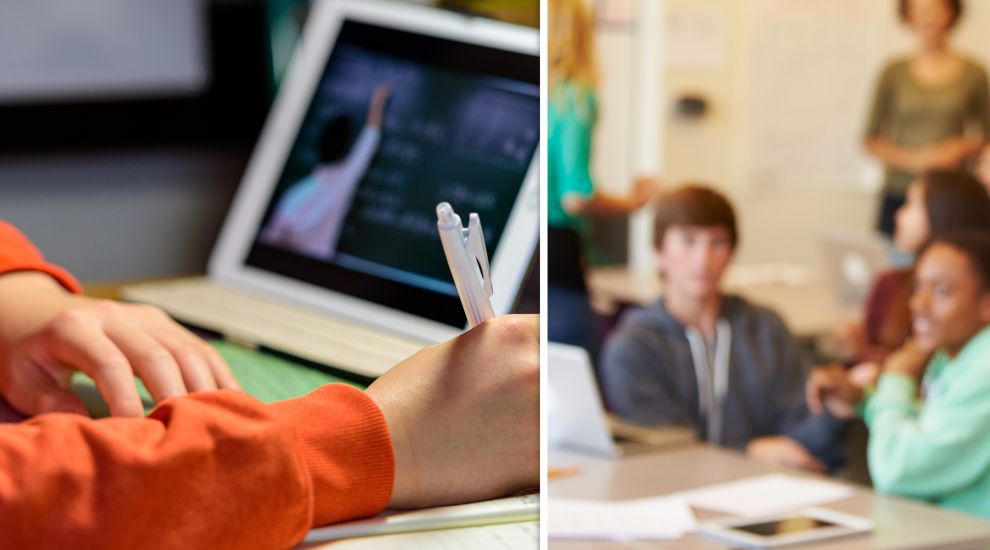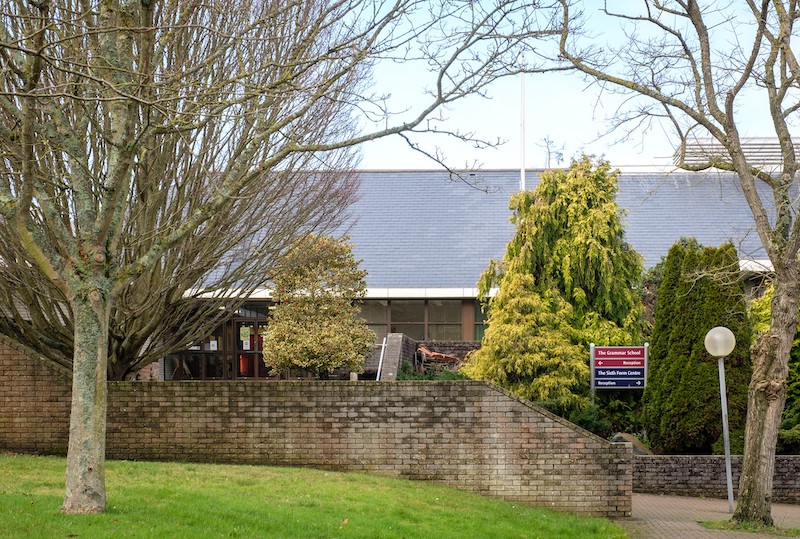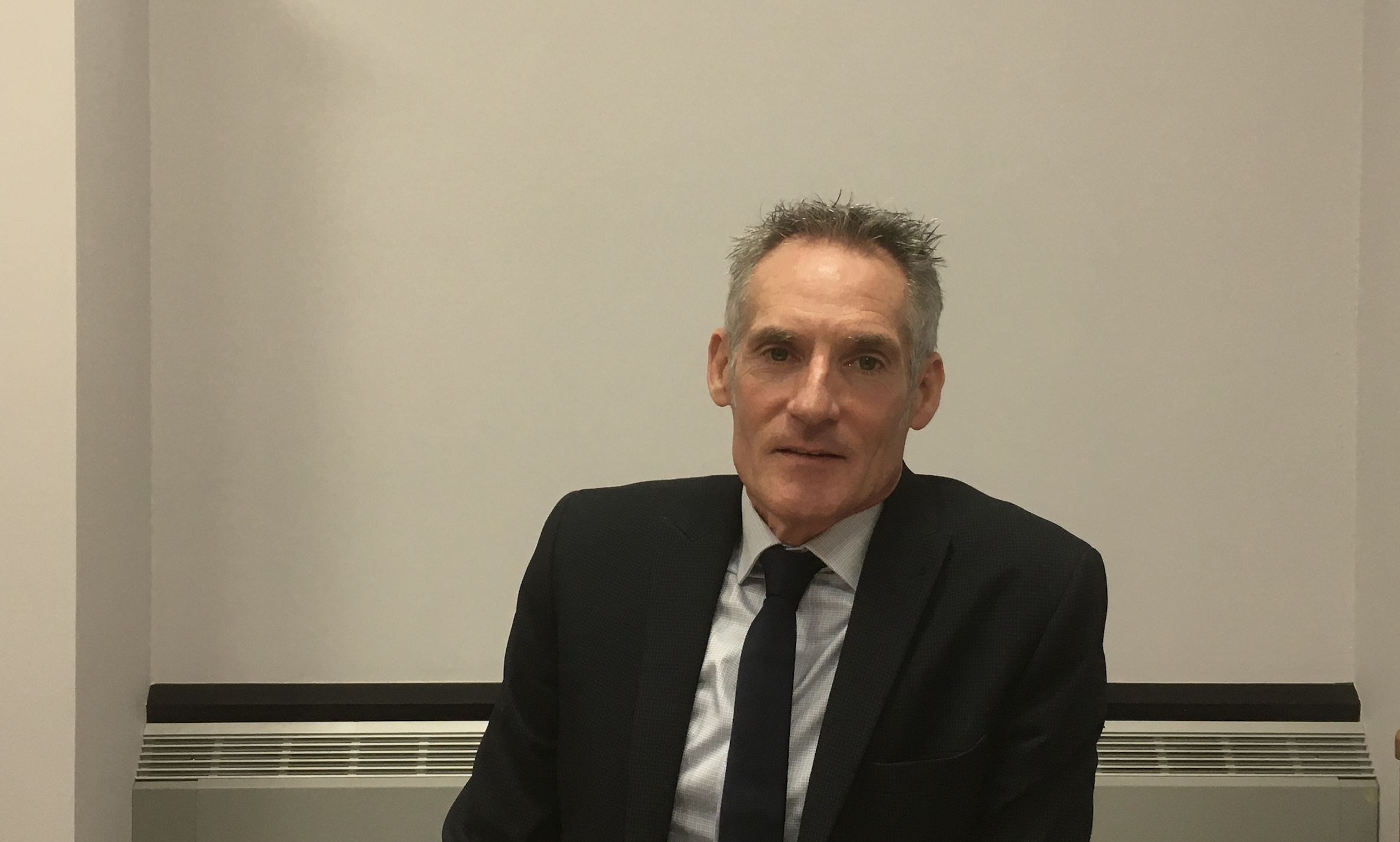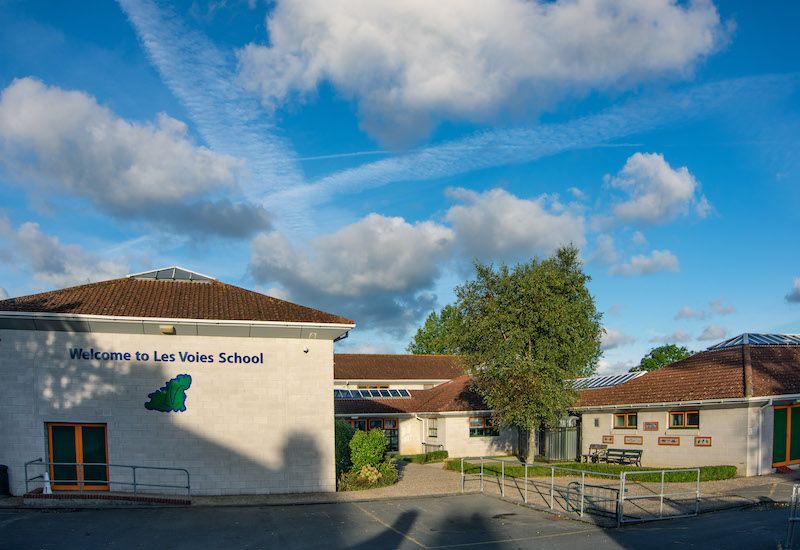


Behavioural problems in schools are nothing new. In fact, it comes with the territory.
Issues with students interacting with mainstream education are cyclical, multi-faceted, and differ wildly between various cohorts.
Why then is there is a growing feeling among some that the issues facing some schools, and the disproportionate impact some dysregulated students have on an education setting, have worsened?
Express sought to find out...
Concerns were originally raised to Express that behavioural issues at Les Varendes were impacting classes and that there has been an increased police presence.
These concerns were reinforced after Express heard from several teachers about various instances of dysregulated behaviour and the impact it was having on staffing and the school body.
While all the people we spoke to chose to remain anonymous, the concerns raised were serious enough to warrant further investigation, and so Express initially reached out to Bailiwick Law Enforcement and the States of Guernsey for comment.
While Guernsey Police don’t hold stats on specific visits to schools, the Executive Principal of the Secondary School Partnership, Liz Coffey did say that police have attended the school a total of four times this academic year, “and twice for the same student on different days”.
She said it is “certainly not a daily occurrence for any of our schools” and “the police can be seen in our schools for other reasons, supporting the delivery of Assemblies or PSCHE lessons for example, or as part of their routine community policing; indeed this is a weekly occurrence at Les Varendes”.
When talking about behavioural issues, Mrs Coffey told Express that “there is a focus on behaviour at this time”.
While it’ll soon become clear that these themes aren’t specific to Les Varendes, this investigation was triggered by incidents at the former Grammar School.
To better understand why these concerns have arisen from those within the Les Varendes setting, we must first put it in context.
This is a school that has gone through a monumental change.

In 2016 the States of Guernsey decided to throw out the 11+, despite having no alternative plan for education in the island.
It took seven years for the island’s politicians to coalesce around a firm education model; three 11-16 schools and separate sixth form centre co-located at Les Ozouets Campus with a newly rebuilt Guernsey Institute.
The decision was essentially the end of the island’s Grammar School as the community knew it, as the site on Les Varendes would need to merge with La Mare de Carteret and evolve to become Guernsey’s third 11-16 States school.
Despite the Transforming Education Programme stagnating, after several failed attempts at getting it funded, the merger happened regardless, and La Mare de Carteret High has slowly been winding down as it prepares to host the island's sixth form centre indefinitely.
It was inevitable then that the former Grammar School would have to adapt to a change in culture.
The newly named Les Varendes has changed, but while this story began at Les Varendes, it's clear that dysregulated students are not unique to this setting, and the issues highlighted by this change in culture are representative of a wider problem.
"We know from surveys that we've done recently, that behaviour in the majority of schools is good,” said Guernsey’s Director of Education, Nick Hynes. “Teachers, support staff, and parents are all saying that's the case.”
“But we know that there are always going to be particular schools at different times who are struggling with particular behaviours for different reasons.
“I think... since Covid, although general behaviour and the behaviour of most children across most schools is good... there are some children who have got particular behaviours which are significantly challenging for some of our schools and settings.”
“The NEU believes that Headteachers and Principals of all Guernsey’s schools should have the ability to permanently exclude those students whose behaviour means that they are unable to learn in mainstream schools and causes significant disruption to the learning of their peers,” a representative from the National Education Union told Express.
Dysregulated students often need extra support to help them develop the skills to re-integrate into mainstream education and the Union believes this support is missing.
“At present we believe that our island, with the best intentions, is in fact letting down our young people. We need better pathways and quicker access to support for some of our most vulnerable students.
“It is often said the true measure of a society can be found in how it treats its most vulnerable members. The States of Guernsey needs to act now to ensure that schools are as inclusive as possible but that when necessary, students can be removed to other settings so that they get the support they need.”
It’s no secret that Guernsey’s Director of Education, Nick Hynes, champions inclusion, and has never liked the idea of “permanent exclusion”.
“I don't think it makes sense to talk about permanent exclusion on an island... if you permit excluding from one of the schools within the secondary school partnership, that young person will probably have to go to another one of those schools,” he told Express during a lengthy interview with him and Mrs Coffey.
"I think what we possibly need to get better at, and this is something we've talked about, is actually making sure that we're finding the most appropriate placements at the right time of that child's journey.
“If they're starting to exhibit some social, emotional, mental health or behaviour challenges [we need] to make sure we're capturing them at the right time, so that they can be successful. Rather than getting into a downward spiral, which is really difficult and challenging for the school to climb out [of].
"I think to just introduce a permanent solution tomorrow wouldn't help or change anything."

Pictured: Mr Hynes.
When it comes to ‘tools in the toolbox’ for seriously disruptive students, States schools rely heavily on exclusions.
"Fixed term exclusions, as we call them in Guernsey, used to be called suspensions,” explained Mrs Coffey.
“They do work, and they can work in the majority of cases. It can provide a really important lesson.
"Then there's another group, it doesn't work the first time and it might take a few go's to really get that message home.
“Then you go to the next layer, and then you start to get... into the sorts of young people who aren't learning from those behaviours, maybe because they can't, maybe the other pressures that they have in their life and in the world [means] they find [mainstream education] difficult and one would hope that somewhere along the line, they have been picked up through [alternative] assessment processes.”
There are several different pathways for children who are having difficulty engaging with mainstream education.
There’s provision at La Mare de Carteret primary called ‘The Pod’ which is an available pathway for students up to years five and six.
It predominantly caters to children under the age of nine who find mainstream education difficult.
The Secondary School Partnership has also put together an alternative provision for students in years 10 and 11 at Les Beaucamps which launched in September.
“There is a group of young people from across all... States schools, who have come together as a cohort who are experiencing that alternative pathway, which is very much bespoke and flexible, to enable them to attend well and be successful,” said Mrs Coffey.
When asked about students who fall between the years of six and 10, Mr Hynes said it’s not considered a gap because the process should allow for dysregulated behaviour to be picked up early.

Guernsey used to have a Link Centre for students who had disengaged with mainstream education.
It eventually became a school in its own right and Les Voies now supports students in Guernsey with social, emotional and behavioural issues.
The institution caters to those with significant difficulties, has a lengthy enrolment process, and isn’t an appropriate pathway for all students who present persistent dysregulated behaviour.
Young people in Guernsey have gone through an unprecedented upheaval in their lives. Covid saw remote learning become the norm and the usual social activities of students disrupted for more than a year.
This isn’t a Guernsey-specific issue and millions of students across the UK experienced the same and poor behaviour has become a notable outfall across hundreds of educational institutions.

A recent Ofsted survey on pupil behaviour in State schools found that nearly half of all teachers said behaviour has worsened since the pandemic.
Statistics gathered by the UK government indicate that temporary suspensions have increased by more than half a million in 2021, and it's clear that exclusions at Les Varendes have increased too. Whether this is due to a change in culture or a symptom of covid is unclear.
The Union and the teachers we spoke to believe the answer is another ‘tool in the toolbox’ - the ability to permanently exclude a student from one of the three States schools and support them in an alternative setting.
This would benefit the student, the teachers, and other students whose learning experience is being impacted.
Education believes the answer lies in a holistic approach to dysregulated students, capturing the student at the right time and utilising the pathways that are already available and will be available in the future.
"We have to have a really intelligent grown-up conversation about this,” said Mrs Coffey, “where we all take on the responsibilities of what we can do to make the provision better for all of our young people.
"It's a challenge and it’s an important conversation we do need to have.”
Comments
Comments on this story express the views of the commentator only, not Bailiwick Publishing. We are unable to guarantee the accuracy of any of those comments.